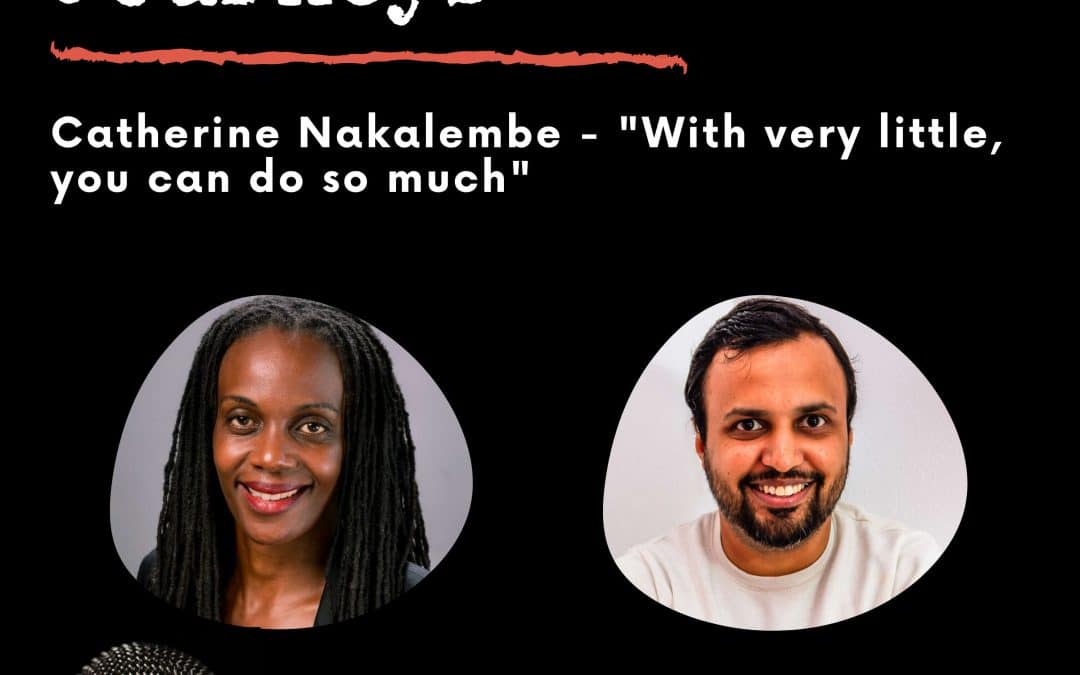This is the Leadership Journey series on the Choosing Leadership Podcast.
I believe we all have a lot to learn from each other’s stories – of where we started, where we are now, and our successes and struggles on the way. With this series of interviews, my attempt is to give leaders an opportunity to share their stories and for all of us to learn from their generous sharing.
In the interview, Catherine shares how she had very humble beginnings growing up just outside Kampala, Uganda, and how she learned so much from her parents – who were very resourceful despite having very little resources. She talked about her openness to learn and build new things, and also shares the value of speaking in a language your audience understands. We also discussed how acknowledging that “I do not know” is often what allows growth to happen.
You can find Catherine at the below links
In the interview, we talk about
- “I really enjoyed badminton. I taught myself how to teach aerobics. I was a games prefect when I was in high school. And for some reason that I can’t really pinpoint, it kept me together and I liked doing it also kept me and my sisters really close because we all played it.”
- “I always loved math. I did do pretty well at math and I loved geography. And so those two things coming together allow me to be able to do this environmental science program. And that’s how I took the path into. Environmental science.”
- “I liked computers so much that I bought my first computer with what would have been my housing stipend. I made a deal with my mom that I’d like to use that money to buy a computer.”
- “I didn’t have access to books and stuff like that growing up. So like my view or perception of the world was, it was very limited. And so going to university and finding out all these other things you can study made me think that I need to do more of it.”
- “Just like with discovering more and more stars and stuff like that, it’s there’s more after this is more, there’s more.”
- “It was in the city, but we lived in a mudhouse and I wanted to my primary school does not exist anymore. It was very small, it’s a place called Katwe. There’s a market there and it’s a slum. And yeah, it was very simple. To watch television I’d have to go to the neighbours.”
- “I walked to school from when I was three, at least six or seven kilometres from home where I went to like kindergarten. And yeah, so it was like that.”
- “It is in my nature maybe want to build on things. When I was five. I didn’t think I was going to be a rocket scientist. I didn’t even know what a rocket scientist or I didn’t say I wanted to be a doctor or I didn’t have that kind of mind frame, but what I had was what I had with me, I would make something.”
- “So like with what I have, I tried to do something with and that, because of that, I discovered more and more which I think opened up more and more doors. I bought a computer, which was dead, had making that computer work, buying additional drives and stuff like that. So that taught me about IT.”
- “It’s just being open and being, having that, the mindset of, if a window opened, you can look in and then see how far you can look at.”
- “You find that there are some people who can do something so quickly and it’s better that they do it. And that makes it makes it a better fit and a better outcome.”
- “I like to communicate as effectively as possible. Trying to sound like a very good scientist when I’m talking to a farmer is completely pointless.”
- “I’m also really grateful for my husband, and my kids that give me I’m blown away by my kids. I’m learning so much through them, which is so exciting.”
- “I try to be present when I’m doing a task. I can tell when I’m not like when I’m supposed to be watching my sons, but I get distracted. I can tell that I get angry really quickly when they ask me something, which as kids they should. Recognizing that helps me like switch off immediately.”
- “The advice that I would give, have given to myself was to keep exploring, even with the limited things that that I had, I liked creating and creating with nothing. Kids learn things from touching and moulding from putting blocks together, it gives them they learn a lot of things and it doesn’t have to be anything special. It doesn’t have to be Legos. You could just be like regular blocks that they made with boxes and things like that.”
- “With very little, you can do so much. No work is beneath you as long as you learn something from it, nothing is beneath anybody.”
- “I listened to some of your podcasts. I’ve listened to, three or four episodes. And it’s just incredible how people reflect on this place and what they do. And it’s, there’s just so much to learn and I learn a lot by listening.”

